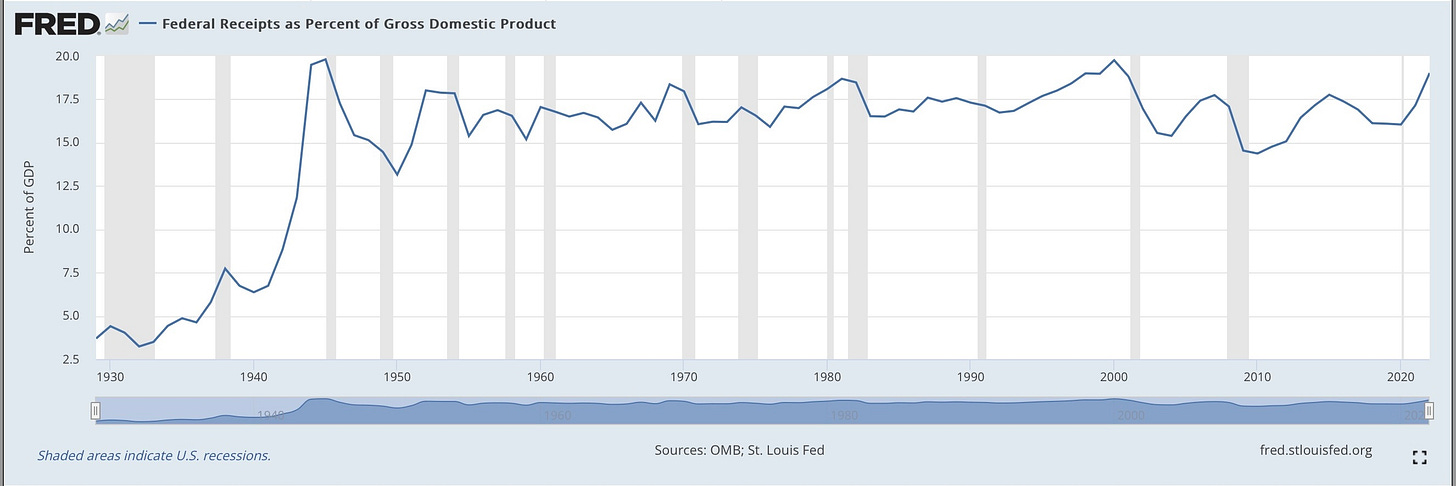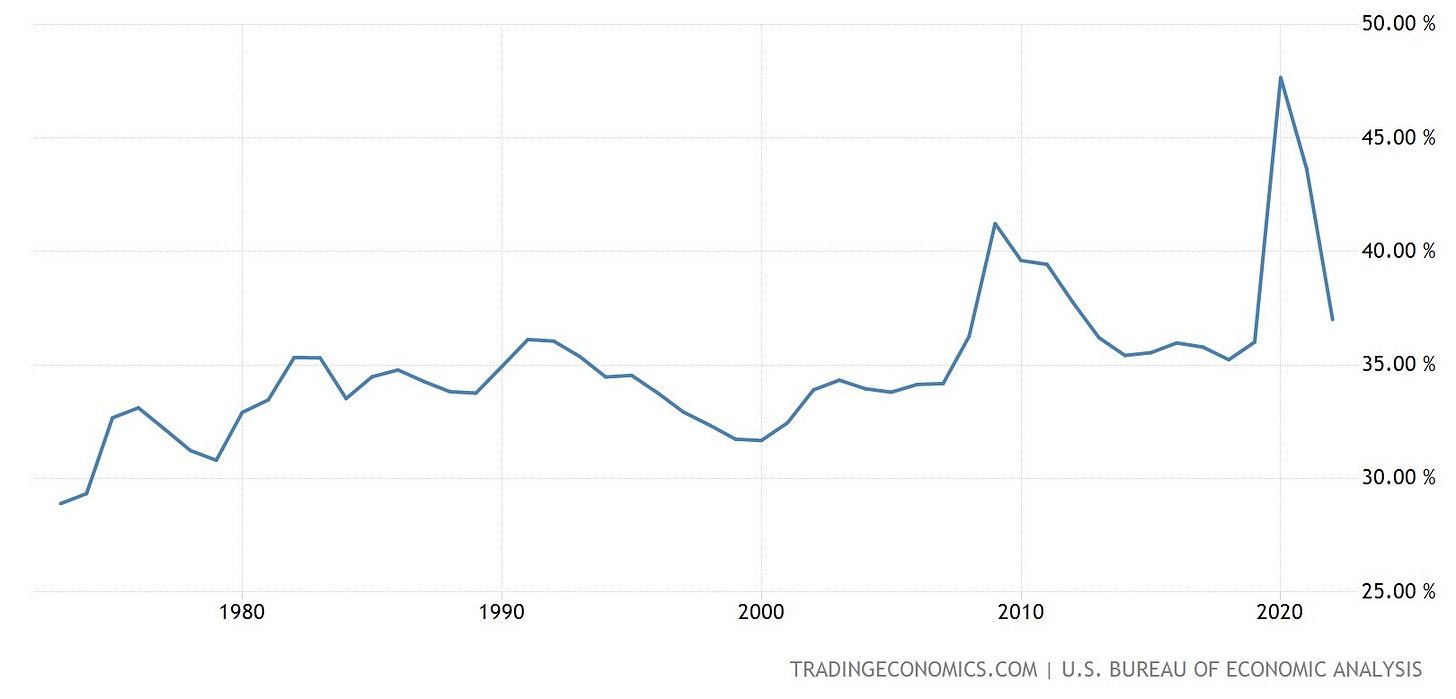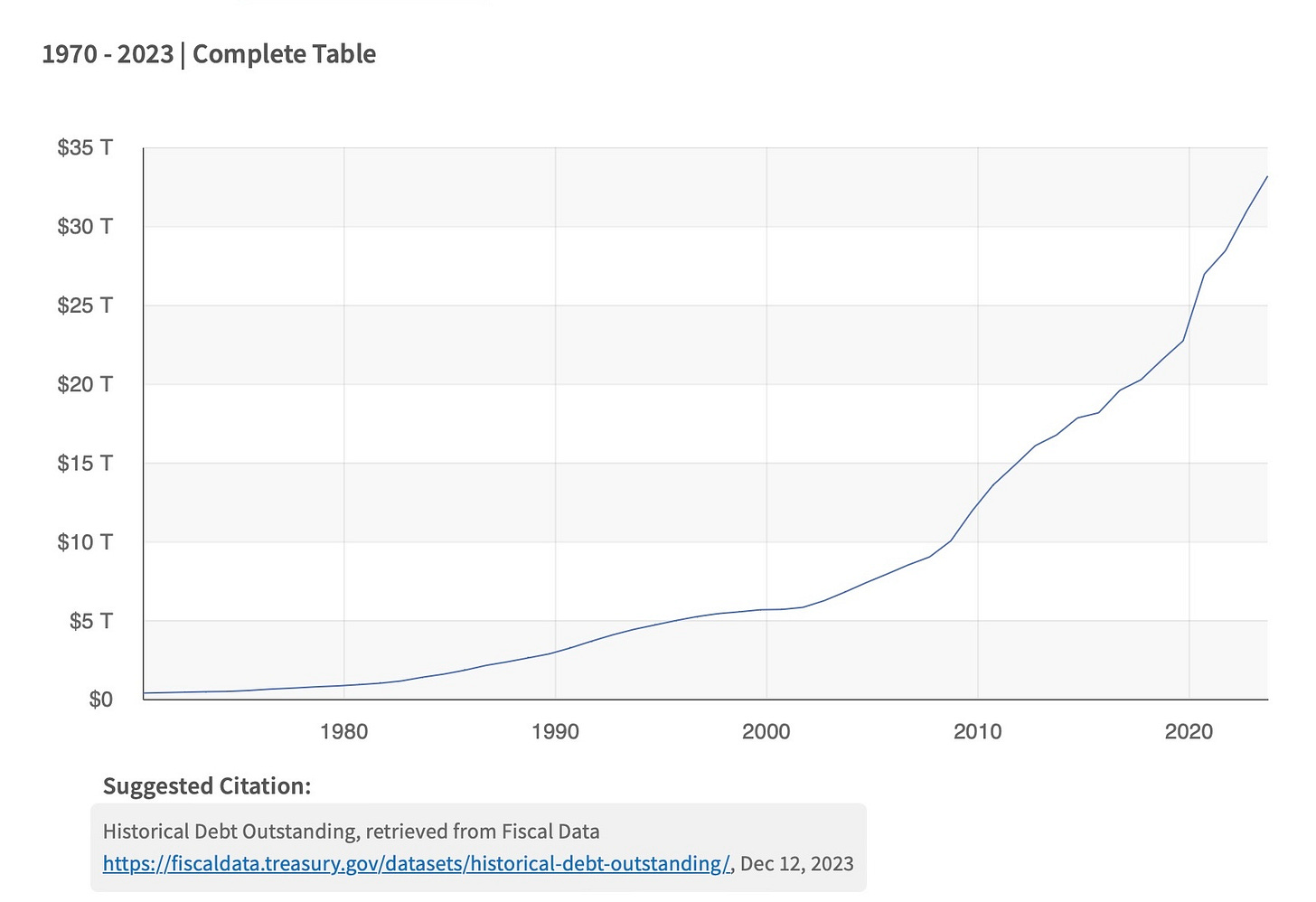The latest inflation data, as helpfully fedsplained to us by Janet Yellen, is "meaningfully coming down." Annualized, it's at 3.1%, which is a marked decrease from the June 2022 peak of 9.1% annualized, but still higher than the Fed's target of 2.0%.
That target may seem low, but the power of compound interest means that, even if the Fed could miraculously keep inflation at that level in the long term, your dollars would still lose half their value every 35 years. But I digress.
I recently wrote of Biden's bamboozling us as to the source of the inflation that has sapped 20% from the dollar's value since he took the oath of office. He blamed everything but the real culprit - the government's reckless spending.
This being the ramp up to an election, and with the economy teetering thanks to the Fed's interest rate increases, you will not hear much about tax increases apart from the usual yapping ankle-biters on the far Left. But, rest assured, when the issue of spending arises during the upcoming Presidential campaign, whoever is speaking for the Democrats will bring up 'repealing tax cuts for big corporations and the rich' in some form. Apart from the twin realities that corporate taxes are ultimately paid by consumers and that "the rich" pay the lion's share of income taxes, this perpetual preening ignores, as so much that comes from the big government types does, human behavior.
Long-time readers may recall my mentioning Hauser's Law, an empirical observation that notes that, since WWII, federal tax receipts stay steady around a long-term average a bit under 20%.
The tale is told in this chart of federal revenues.
Contrast that revenue history with this chart of federal spending.
Do you see the problem? We haven't even come close to the Hauser average in the half century charted here (and in truth, much longer). This is affirmed by this chart of the accumulated national debt.
Do you see any dips in that curve? Has the government ever balanced the budget in your lifetime?
Bill Clinton's admirers credited him for balancing the budget the last couple years of his presidency. Apart from his benefiting from the dot-com boom and a Republican Congress, the fact is that he didn't. Like every President since LBJ, he has benefited from the accounting chicanery that folds excess Social Security receipts into the general fund, no matter that those receipts are supposed to cover future obligations, in order to mask the real deficits. Even in those years, the national debt increased.
The point of all this is that the government cannot balance its books absent major spending cuts, and because it cannot balance its books, it has to borrow and/or print money. That is the true source of inflation, and it's something beyond the Fed's power to remediate. Only Congress and the President can cut spending, but they won't because too many Americans have grown used to "largess from the treasury." Instead, they will demagogue about raising taxes, ignoring Hauser's Law (which is a reflection of people changing their habits in response to changing rules) and not fixing the problem.
I figure that the Fed will start cutting rates ahead of the general election, so as to artificially goose the stock market and the economy. If they time it right, inflation won't spike again until after the election, and then they can find more things to spend on and continue pretending that inflation isn't their fault. And, they'll resume demanding tax increases.
The only way around Hauser's Law that I see is adding a consumption-side tax to the stew, like the Europeans do. Either as a value-added tax or a final-point sales tax. Either way, that will be a major next step in the Europeanization of America, with all that comes with it. That includes lower living standards, by the way. Europe's living standards lag America's.
You (may have) heard it here first. If we continue on this trajectory, they're going to have to try and slap a VAT on us, which hits everyone and not just "the rich."
In case you were unaware, the tax code has had a top rate as high as 91% on income. Critics argue that almost no one paid that because loopholes, but if you were a taxpayer and knew your next hour of work would return only 9% of your pay, would you work it?
I wouldn’t.
Here, as an end note, I offer the Laffer Curve, a thought experiment that posits that tax revenues will start to decrease once tax rates are increased past a certain level.
People who don't much care for reality like to mock the idea, but as I noted, humans change behavior when the rules change. It's similar to the Welfare Trap, which is when government assistance decreases faster than income increases, disincentivizing people to try and work out of poverty.
This is the eternal failing of socialists, communists, fascists, and other collectivists. They ignore human behavior.










From, I think, the early 2000's until a couple of years ago, we huge budget deficits, but low interest rates ("quantitative easing"), and low inflation, at least as measured by CPI. I think part of the answer is that we had asset inflation - stocks and real estate. But what was the difference between then and now? What causes inflation to manifest itself through assets vs. CPI?
If the Democrats wanted to raise taxes on The Rich (tm) they've certainly had the opportunity. During most of the Obama presidency and over 2 of the last 3 years. The fact is The Rich (tm) give overwhelmingly to the Dems - so this whole "eat the rich" trope is just a rhetorical flourish they use to whip up their base. And the The Rich (tm) know it.
As for spending, I'm not worried - each new trillion takes us that much closer to the realization of Herb Stein's Law. It will stop - if for no other reason, it cannot continue.